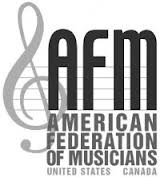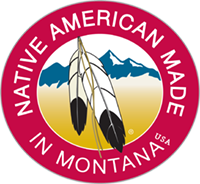Remembering Private Charlo
“Call him drunken Ira Hayes he won’t answer anymore, not the whiskey drinkin’ Indian nor the Marine that went to war...” So goes the chorus of the late Johnny Cash/Peter LaFarge hit reflecting upon the ironic, tragic demise of one of the replacement flag raisers in the Battle for Iwo Jima, February 23, 1945. Ira, a Pima Indian from Arizona, was not the only, or even the first American Indian to reach the summit of Mt. Suribachi on the 5th of a 35 day ordeal for the U.S. Navy and Marines. Private Louis Charlo, a Bitterroot Salish Indian from Montana was also cast in the drama surrounding the flags that were raised on Iwo Jima, over sixty-five years ago.. The following is my poetic rendition of Bitterroot Salish/U.S. history and the battle for Iwo Jima and Charlo’s role in it.
I.) Bitterrroot Sunrise
Wey nah hey Weh nah hey nah weh nah
Wey nah hey Weh nah wey nah hey
Wey nah hey Weh nah hey nah weh nah
Wey nah haw ne ya, weh nah, haw ne ya, weh nah hey....
II.) U.S. Corp of Discovery March (Ross Hole, Bitterroot Valley, Thursday September 4th and 5th, 1805)
III.) Bitterrroot Salish/U.S. History, Poetic Summary, 1805-1891
Through the valley of the Bitterrroot, September eighteen-five
Two U.S. Captains funneled their command
Soldiers ragged, cold and hungry as they prepared to stand
before Coyote’s people, children of the land
The native heart was open sharing ponies and white robes
Land-locked Argonauts proclaimed their trek’s intention
To manifest their destiny through allies and new trade
The quest for land was not addressed or even mentioned
Seventeen stars rose proudly over the valley
Chief Three Eagles welcomed strangers in their home
affirming “Brothers are forever through suffering and joy”
“In our home you’ll never be alone...”
Voracious corporations, furs were first in line
The dream inside the dream of Eden ended
Guns, disease and whiskey, a crucifix of steel
did precede demands for land from those befriended.
Summer eighteen fifty-five, U.S. reps arrived
to manage concentration of the tribes
Political convenience, promises in session
were broken by a pen of dispossession
Forty-four stars hung silent over the valley
“Old Charlo” was driven from his home
from open arms to refugee, in less than a century
the focus of the heart was then unknown
1) Private Louis Charles (“Chuck”) Charlo U.S.M.C.
IV.) Bitterroot Dusk
Wey nah hey Weh nah hey nah weh nah
Wey nah hey eya wey ne ya hey
V.) (December 7th, 1941, F. D. R. “Infamy” Address to U.S.)
VI.) A Warrior’s Call
By the summer of 1942 fascism smothered the globe
Coyote’s people had kept alive their stories, around the fire told
the great grandson of Charlo sat spellbound by his dad
as the Mission Range turned to snow
The call of a warrior is first answered in the light
then later re-affirmed when awakened, in the night
in November nineteen forty-three “Chuck” Charlo dropped to one knee
and pleaded for his mom’s consent to enlist at seventeen
He said “my deepest wish is to be a Marine
I promise to return, just wait and see
Our people will be proud of me
Our struggle will be won over Hitler and the Rising Sun”
VII.) U.S.M.C., Boot Camp (Alchemy)
Boot camp at Pendleton, M-1s and sub-machine guns
K-BARs, SOB instructors drill to alchemy
reps at Camp Tarawa, Parkers Ranch Hawaii
There’s no retreat, no defeat, we’re United States Marines!
Con-ditioned every way, day after day to fight an enemy that we may never see
We’ve bonded into fire teams, squads and platoons Con-spicuously coined “Easy Company”
VIII.) “On the U.S.S. Missoula” (Crosswinds of Eternity)
On the U.S.S. Missoula pushing towards a rendezvous with the blue (with the blue) with the blue (with the blue) maybe sky, may be ocean, maybe a typhoon of glowin’ steel (glowin’ steel) of glowing steel (glowing steel)
The crosswinds of eternity are gusting through the portals of my destiny Destiny...
I wonder if the Japanese have thoughts like these perhaps they carry photographs from home Must I suffocate all empathy for the enemy in war towards the rock entrenched defenders on the shore We must paralyze compassion for the enemy in war....
IX.) Iwo Jima
X.) Epilogue
February nineteenth, nineteen forty-five, Tokyo Prefecture Through sheets of withering fire, Marines stormed the Japanese Alamo of Iwo Jima
A sulfuric labyrinth whose song was sung by the children of Japan. As light fell on day four, Suribachi smoldered in cryptic silhouette,
At sun-up, a patrol was chosen to recon its summit on this team was Private Louis Charlo of the Bitterroot Salish Nation
Four U.S. Marines climbed high above the island Anchored by the wings of history In a letter back home to his folks in Montana, Louis wrote “I was involved in the fracas atop Suribachi”
At 10:20 AM, Charlo joined in raising forty eight stars over Iwo Jima Mid-afternoon, a flag, salvaged from Pearl Harbor, replaced the original
A banner forever captured, immortalized and misrepresented by “The Photograph”
To the American Public “The Photograph” portrayed a battle practically won but for the island warriors, the battle had only begun
for well over a month it raged, through twenty-four hour days The disintegration of “Cain and Abel”.
On March 2nd in a firelane sector called “Meatgrinder” Private Ed McLaughlin, of Boys Town, Nebraska went down, severely wounded
“Semper Fi”! Charlo rushed to his buddy’s side and while attempting to carry him to safety both were killed by machine gun fire...
Charlo, from the line of Salish Chiefs dating back to Lewis and Clark “Chuck” Charlo, who pleaded for his mom’s consent to serve the nations he loved Private Louis Charlo, a U.S. Marine who scouted for and helped raise the first flag on Iwo Jima
Charlo was eighteen. XI.) USMC Hymn, Bitterroot Singers
Wey nah hey nah weh nah hey nah hey weh nah hey nah weh nah hey
#8) “Wild Turkey” featuring Corp of Discovery and Bitterroot Salish Montana campfire concert (September 4th, 1805) featuring R. Carlo Nakai and Will Clipman joining Bitterroot Band.


